There's nothing like fruit trees to add beauty and value to a residential property. With space to plant several, you're wondering what would be most likely to flourish in your back garden. The fact is there are a number of UK fruit trees that are known to grow well. Consider the following suggestions, and how they fit in with your likes and dislikes.
10 Best Fruit Trees to Grow in the UK
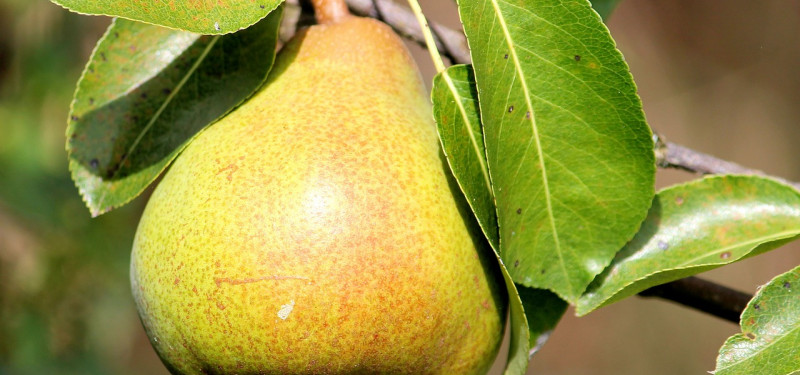
1. Pear Trees
The typical fruit pear tree UK is one of the hardiest options on this list. Cold weather is not a deterrent, and the tree will thrive equally well during droughts, warmer temperatures, and periods of high humidity. Best of all, pear trees are apt to blossom earlier and produce the first fruits during the first weeks of summer.
Are you looking for something that you can start in a gardening pot? If so, a pear tree is for you. In fact, some varieties will do just fine in a pot if you prefer to keep it on a veranda or patio.
2. Fig Trees
Fig trees are an excellent option if you want something that tends to repel pests. Squirrels, rabbits, and chipmunks tend to steer clear of them. Deer are not fond of fig trees either. That's a plus if you live in a country setting rather than an urban or suburban one.
This one does equally well inside or outside. Feel free to keep the tree in a gardening pot, or transfer it to a spot in the garden once the weather is warmer.
The fig tree is also easy to care for. Essentially, you plant the tree, make sure to water it weekly, and then leave it alone. The reward for your consistent watering is bumper crops of figs that you can turn into all sorts of preserves and jams.
Should you decide to grow fig trees in gardening pots, make sure they do receive enough water. The soil should be moist but not overly saturated. If the soil dries out too much, the tree won't bear fruit, and it may begin to die.
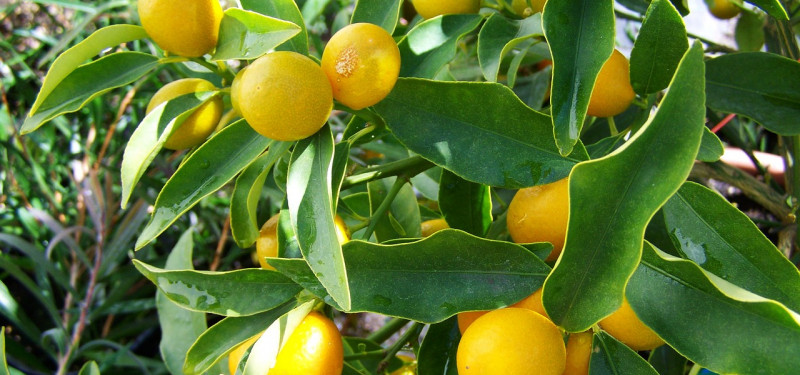
3. Lemon Trees
Lemon trees are among the most popular of all citrus trees, and with good reason. While the tree's fruit is anything but sweet, it is versatile. From beverages to pies and pastries, there's quite a few ways to enjoy lemons.
Unlike most of the other fruits on this list, lemon trees are best left in gardening pots. The trees do better in a heated environment, so that makes them ideal for growing inside, as long as you can provide access to natural light. Other than that, a little water now and then is all the tree will need.
Along with the ornamental quality and the fact that the fruit is so versatile, there's also the scent that lemon trees emit. It's sure to make the room smell wonderful all year long.
4. Cherry Trees
There are several varieties of cherry trees that you can consider. Some of them do well in colder weather, while others will produce more fruit in warmer weather. Whatever variety you choose, a little care will lead to a considerable crop of cherries. It's not unusual for some varieties to produce as much as 50 pounds of fruit in a single season.
If you're looking to add something to the back garden that will act as a cross-pollinator, cherry trees are a fine choice. They do well with multiple fruit trees, particularly varieties of apple trees.
Be aware that too much water can kill a peach tree. It's also a good idea to consider netting as a way to protect the fruit from birds. While many birds will simply ignore the trees, those that do go for cherries can ruin the fruit in very little time.
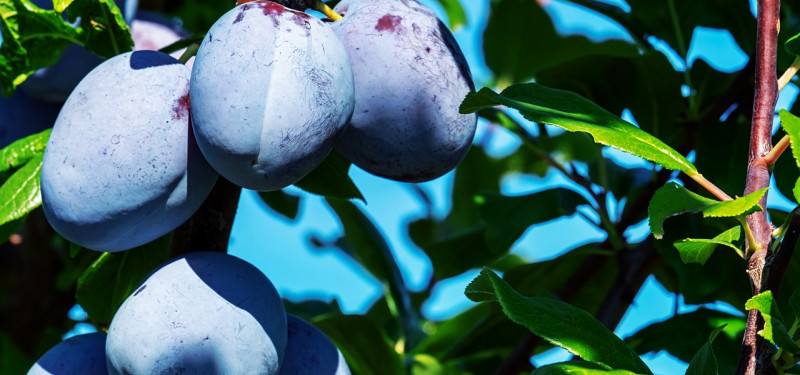
5. Plum Trees
There are several fruit trees that do well in warmer weather. The plum tree does more than do fine; it actually thrives when things are hotter. The fruit usually develops in the early summer, and continues through the season.
Plum trees don't need a lot of space. That's great if your back garden is a little smaller. If this sounds like something you would like, consider opting for damson trees. This variety produces plums that are smaller, and tend to be dark blue or purple in color. They're also tasty to each fresh, and happen to make wonderful jams and jellies.
6. Quince Trees
This particular fruit tree has a history tracing back to the 13th century. It's said that Kind Edward I has several quince trees planted around the grounds of the Tower of London. In recent years, they've seen something of a resurgence in popularity.
Quince trees do best in warmer weather, although they often blossom while there's still a chance for frost. This means finding a spot in the garden that provides plenty of access to sunlight, but also offers some degree of shelter.
When raw, quince has yellow flesh with a somewhat lumpy texture. Typically, quince is cooked for serving. At that time, the fruit emits a pleasing aroma, the flesh takes on a pinkish hue, and the taste is sweet.
Be mindful of aphids infesting the quince trees. They will suck the sap out of the trees, and cause a great deal of damage to the leaves. Aphids will also damage the blossoms before they can develop into fruit.
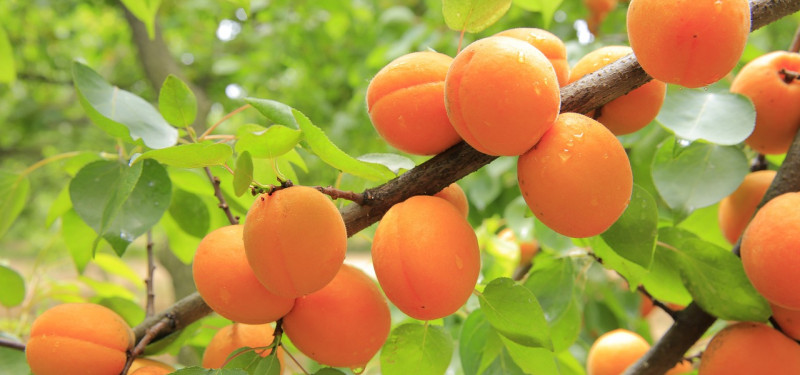
7. Apricot Trees
Apricot trees do very well during periods of higher heat and humidity. They also continue to thrive during dry weather. Of all the options on this list, apricot trees are the most likely to do well during a drought. Even with little to no rain, you can expect plenty of apricots to harvest.
These trees tend to be smaller, making them an ideal choice for smaller gardens. They are only slightly larger than fig trees. This makes them especially suitable for urban and suburban gardens. In the country, anywhere in the garden that provides plenty of light will do fine.
8. Apple Trees
Along with plenty of varieties to consider, apple trees are considered the perfect cool-weather fruit. The trees will bloom and bear fruit during a cooler spring and also in a cool autumn. The abundant crop also means there's plenty of fruit to enjoy fresh, freeze, can, and prepare as jams and jellies. Most varieties provide an ample harvest between August and November.
Of all the fruits on this list, apple trees may be the easiest to grow anywhere within the nation. The trees don't need to be fertilized, rarely if ever need pruning, can be planted in almost any type of soil, and won't require much in the way of watering. If you want to buy fruit trees UK that need little attention, opting for apple trees is the way to go.
Keep in mind that apple trees are the favorites of many pests. Take steps to protect the trees from deer, squirrels, and deer if you want to have any fruit left for your use.
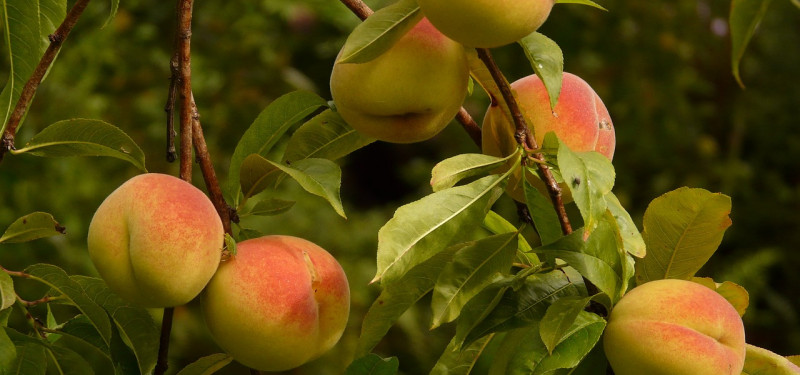
9. Peach Trees
Peach trees don't just tolerate warmer weather; they actually do better when it's hot. The heat and humidity of summertime are ideal for these trees. You'll see plenty of blossoms, followed by more fruit than one person can keep up with. Rest assured you can give peaches away and still have plenty for your use.
You will likely need a bit of room for your peach trees. That's because some varieties grow wide as well as high. However, there are some that tend to be taller without as much spread. Depending on the variety that you choose, you may be able to fit in no more than a couple of trees, or there may be room for more.
Speed is also a plus with peach trees. Some fruit trees may need several years before the first fruit bears. With these trees, don't be surprised if fruit begins to bear within 1-2 years.
10. Nectarine Trees
Nectarine trees are considered in the same family as peach trees. One of the qualities that they share is a love of heat. Next, to peach trees, the nectarine tree is the one that's likely to do best during the heat of the summer months.
You can also expect the fruit to develop earlier than some other options. Whether you have the trees in the ground or in a pot, there's a good chance of having fruit appear within one to two years.
Cold can do serious damage. Depending on how close to freezing the temperature drops, you may want to wrap planted trees with burlap. Potted trees can be brought indoors if necessary.
Remember to arrange for soil analysis, consider the amount of sunlight the back garden receives, and even your personal preferences for fruit. Once you have a firm idea of what you want, spend some time checking out the options for ordering UK fruit trees online. The right online seller will offer trees of quality that are likely to flourish in your space.